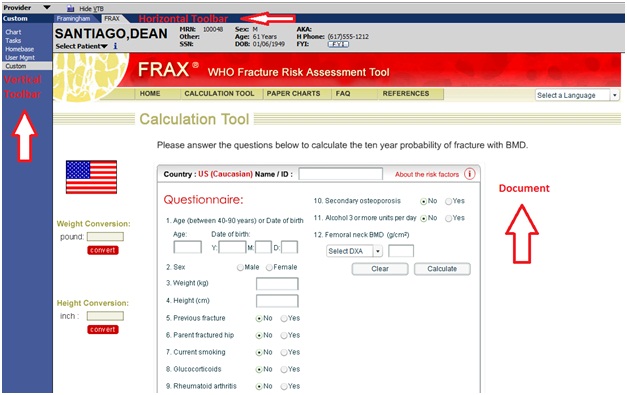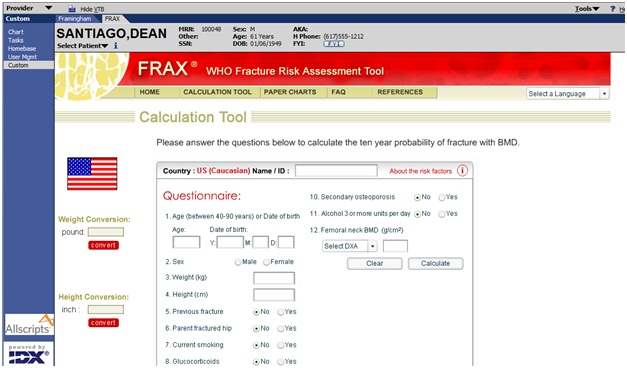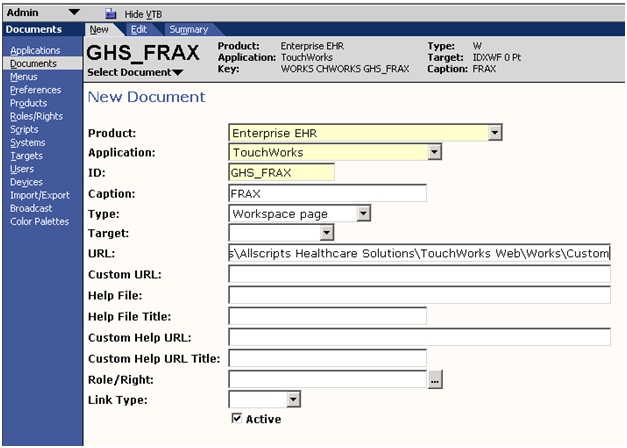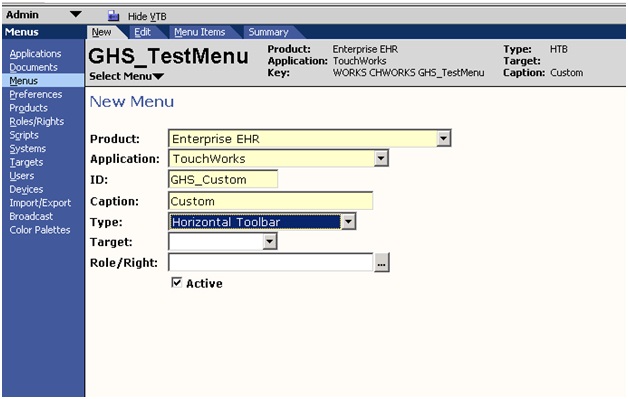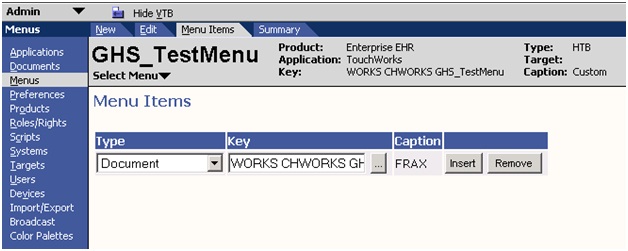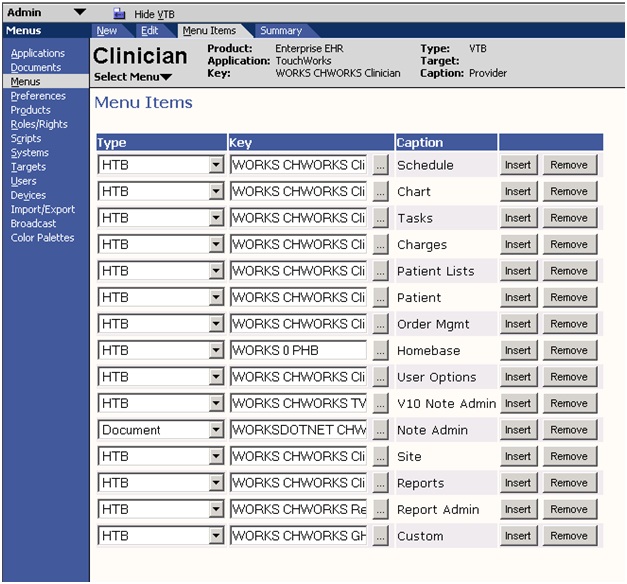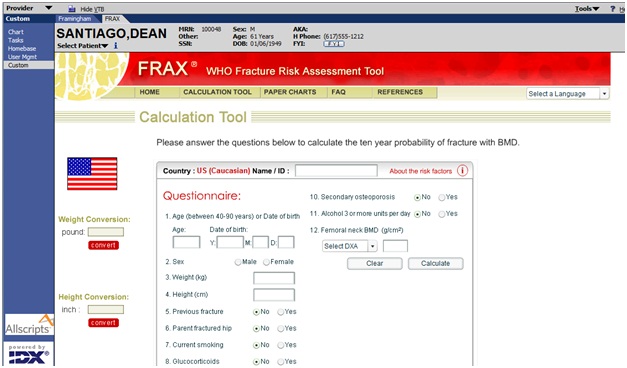Add New Web Framework Documents to the EHR
Overview
When attempting to add new custom links and documents to the EEHR, one must first understand the basic overview of how pages are rendered in the EEHR.
!! Extreme care should be taken when editing previously created and/or delivered Workplaces, Vertical Toolbars and Horizontal Toolbars, as entire views can disappear !!
The EEHR is broken into 4 main components. Every user operates in a workspace that is designated to them. Within each of these workspaces there are multiple Vertical Toolbars (links along the left side of the EEHR system going down). Each link of the Vertical Toolbar contains a Horizontal Toolbar (tabs going across at the top of each page). Each tab refers to a document, which is the space that the custom page will live in.
The key to successfully adding new pages to the EEHR is to work from a bottom-up approach. One should begin by creating a document, then creating a Horizontal Toolbar and adding the document created to it, then finally linking this to the main page by creating a new Vertical Toolbar menu item and linking this to the Horizontal Toolbar.
Case Study
In the following example, a custom link is added on the VTB containing a Horizontal Toolbar with a tab named FRAX which point out to a website to help determine the likelihood for a patient to have a fracture (as pictured above). This will cause a website to be rendered in the viewing window as shown below.
Implementation Steps
- Create a custom folder for the file to be saved in, for this example the following path was used C:\Program Files\Allscripts Healthcare Solutions\TouchWorks Web\Works\Custom.
- Create the file FRAX.htm file and save it in the above custom folder.
- Create the document:
- From the admin Workplace select documents.
- Select the new tab.
- Fill in the information as shown below for Product, Application and Type.
- Create an ID that is easily referenced when searching, in this case GHS for Galen Healthcare Services
- Create a caption, this will be what the link will look like on the EEHR.
- Set the type to the appropriate type
- Set the target (usually 'Blank' or 'Patient')
- Specify the path in the URL where the file was saved. For this example, use "../../Custom/custom.htm".
- Create the Horizontal Tool Bar
- The menu should then be populated and the FRAX document that was created inserted as shown below.
- Click on the edit tab
- Adding the Horizontal Toolbar to the Vertical Toolbar.
- Log in as the user whose VTB the new HTB was added to and verify that the changes were implemented successfully as shown below.
